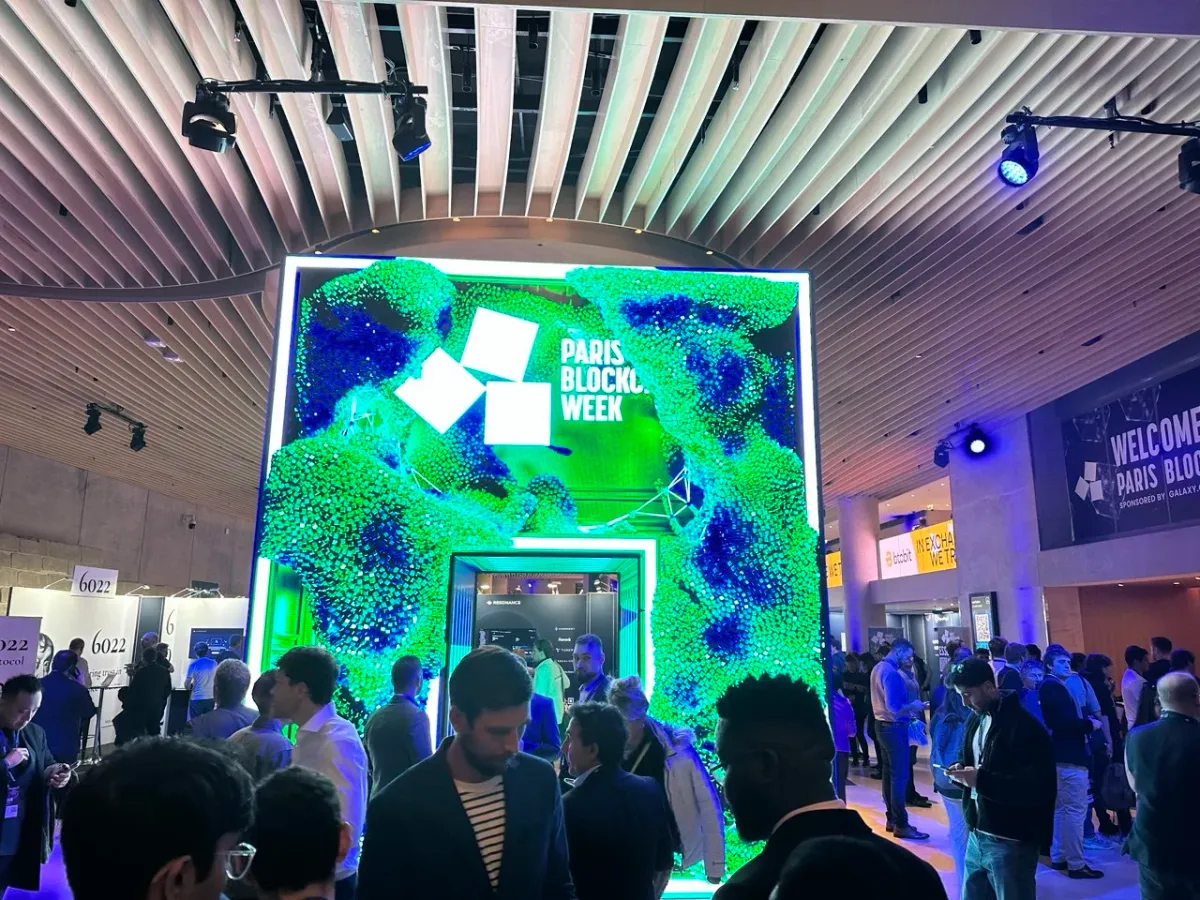
Paris Blockchain Week 2025 - Day 1
The first day at Paris Blockchain Week (PBW) felt less like a wave of breakthroughs, more like a quiet calibration. In Europe, we’re still in a phase of understanding potential and building infrastructure; not fireworks.
DeFi is Maturing, And With It Comes New Specialisations
PayFi: payment-driven financial protocols built to solve inefficiencies (e.g. real-time settlements) with speed and interoperability in mind. It’s not flashy, but it’s frictionless. And in a world where user experience defines adoption, frictionlessness is power to integrate the new Web to our current and emerging habits.
ReFi: regeneration-driven financial protocols designed to embed sustainability and ecological intelligence at the core of economic systems. It shifts the logic from extraction to regeneration, and from profit maximization to long-term value creation. In a world facing planetary limits, regeneration is resilience, and finance shapes the soil where new systems take root.
One idea stood out:
Just as we no longer distinguish between “internet” and “intranet,” the boundaries between permissioned and permissionless networks will blur.
What matters is flow - networks that prioritize experience, are fluid, adaptive, and seamlessly interoperable.
That’s the vision quietly forming: an internet of value as seamless as nature - layered, partially open but transparent, mostly invisible to the eye and integrated into our flows.
Yet the deeper questions remain untouched:
- How do we abstract the complexity for a seamless integration into our everyday lives?
- How do we design systems not just to scale, but to ensure sustainable growth?
We’re building the infrastructure of the next economy, but without a shift in worldview, we risk scaling old problems on new rails. I’m looking forward to uncovering the adoption of Circular Economy principles supported by AI coordination that can be integrated into products and services.
There’s signal. There’s momentum. But the future is still taking form - what’s emerging isn’t just new tech - it’s a new choreography, and Blockchain enables us to design systems for coopetition. Actors will need to collaborate as much as they compete, globally and across borders.
PBW Day 2 - Foundations & Convergence
In Europe, regulation and compliance still dominate the conversations.
Eric Demuth, Bitpanda’s CEO and Co-Founder, highlighted that “regulation is still the most important game in Europe” during an insightful talk about how to navigate uncertainty in an evermore unstable geopolitical environment. Eric also shared a refreshing reminder: “Europe is not as homogeneous as the US, and serving a customer in France is completely different from serving a customer in Germany”
Yes, protecting users is essential. But over-regulation, fear-driven compliance, and a fixation on control risk freeze the very creativity and innovation we’re here to nurture. While we fear AI is taking our jobs.
You can’t build a living system in a cage. People aren’t children - they need education, not babysitting or surveillance.
If we want meaningful progress, we must allow space for experimentation and intelligent risk. Freedom with responsibility. That’s how resilient systems evolve - step by step.
Beyond that, much of the space here is still focused on the foundations - exchanges, listing, crypto<>fiat rails. Necessary, not exciting, and a bit redundant, but reinforces decentralization.
What’s more interesting is what’s starting to emerge at the edge:
Blockchain x AI convergence.
Marco Javarone, leading research and development on the intersection of Blockchain, AI and Quantum Computing at Exponential Science, reminded us of a fundamental point of convergence between Blockchain and AI - they both deal with data, at different levels:
- Blockchain secures data - immutable, timestamped, verifiable
- Artificial Intelligence consumes data - learning and adapting from it
Together, they can unlock systems that are more fluid, robust, and verifiable.
Pure data, enabled by Blockchain, requires less, if any, post-processing. It’s clean by default. This opens the door to strong synergies between the two emerging technologies.
Blockchain becomes the substrate. AI becomes the motion layer. The system becomes responsive.
Regenerative Finance (ReFi) is starting to show signs of life, too.
Buy an NFT, acquire a solar panel, earn yield from the clean energy it generates. We can’t yet prove the energy we use is clean - but we can prove we chose to pay for clean energy.
Speaking of Blockchain-powered supply chains, we can now ensure ethical tracing of the minerals and materials end-to-end: from extraction to refinement into products.
This is not yet scaled but a side-event showcasing tokenized rare gems democratizing high-end investment hinted us that this is an inevitable path we’re taking. And it can support more circular flows of materials and energy, while facilitating industrial symbiosis. Coopetition becomes the next paradigm for businesses to build regenerative systems, facilitated by Blockchain.
Finally, a solid panel involving some of the leaders of the digital transition like Alexandre Dreyfus from Chiliz & Socios and Ripple representatives presented how tokenisation keeps evolving and is shaping digital interactions - not just to raise capital and enable investment on tokenised gems or other Real World Assets, but to design more active, participatory relationships between brands and their customers.
We can start to feel the potential of the infrastructure for an intelligent, responsive economy.
We have the cards in our hands to design the next generation of economic systems that serve the people, in rhythm with the planet.

